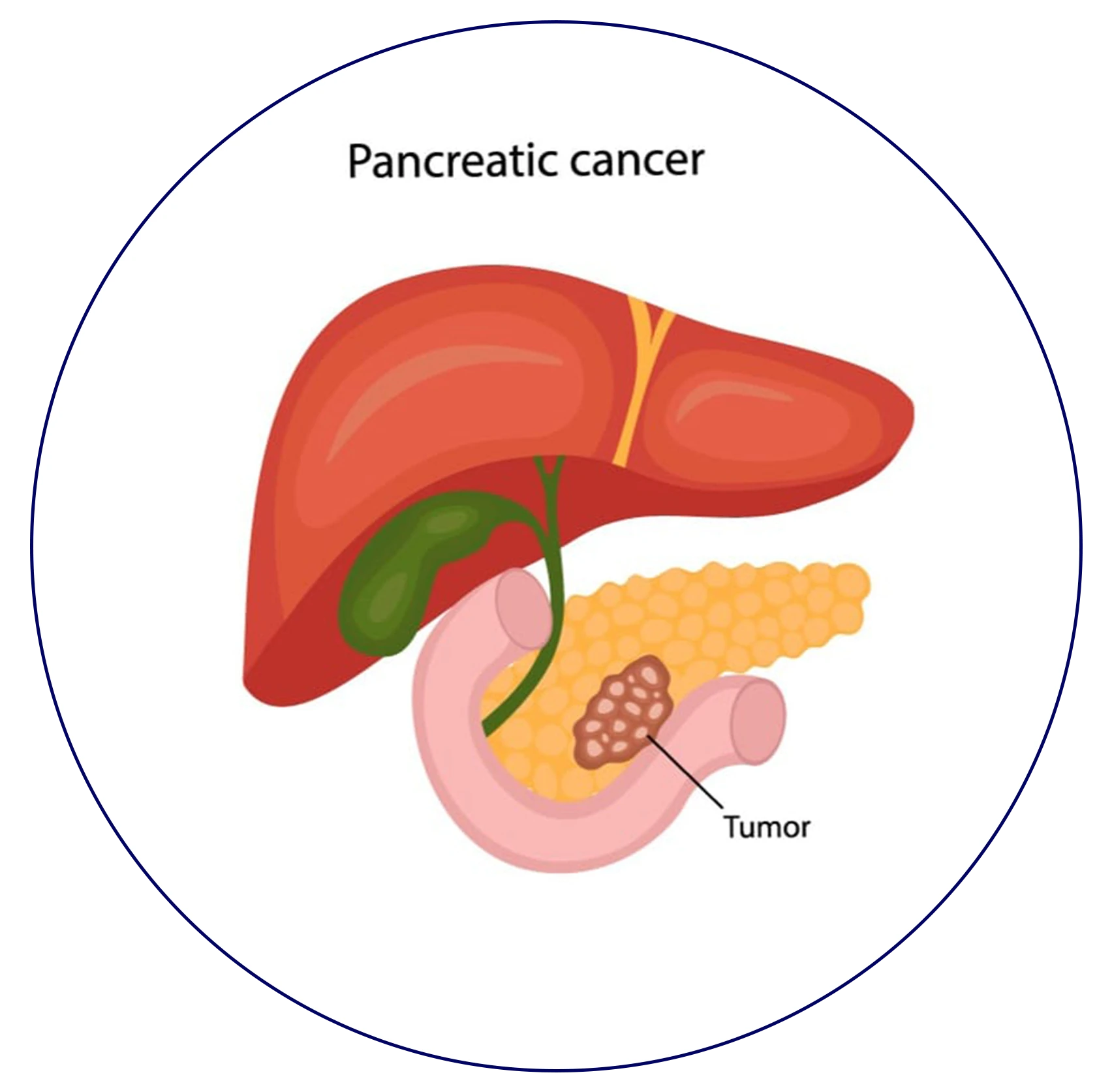Pancreatic Cancer
Pancreatic Cancer
The pancreas is located in the abdomen, behind the lower portion of the stomach. Pancreatic cancer initially manifests in the tissues of the pancreas. Your pancreas produces enzymes for digestion and hormones for blood sugar regulation. The pancreas is capable of producing both harmful and benign tumors. The most typical type of pancreatic cancer manifests itself in the cells surrounding the ducts that the pancreas utilizes to release digesting enzymes (pancreatic ductal adenocarcinoma).

Causes
The exact cause of pancreatic cancer is unknown. Smoking and having specific inherited gene mutations are linked to an increased risk of this type of cancer.
Understanding your pancreas: Your pancreas is around 6 inches (15 centimeters) in length and looks like a pear lying on its side. It discharges (secretes) chemicals, including insulin, to assist your body with handling sugar in the food varieties you eat. Also, it produces stomach-related juices to help your body process food and retain supplements.
How pancreatic cancer forms: Cells in your pancreas can modify (transform) their DNA, leading to pancreatic cancer development. The instructions for a cell are encoded in its DNA. These changes give the cells the go-ahead to overgrow and continue existing long after normal cells expire. Growth can be shaped by these accumulating cells. If the pancreatic condition is not addressed, the cells can travel to nearby organs, veins, and distant body parts. The cells that line the pancreatic conduits are the first to become affected by most pancreatic diseases. Adenocarcinoma of the pancreas or pancreatic exocrine illness describes this cancerous development. Less frequently, pancreatic ailment might develop in the neuroendocrine cells or the chemical-delivering cells. Pancreatic neuroendocrine growths, islet cell growths, and pancreatic cancer are the names given to these conditions.
Risk factors
Factors that may increase your risk of pancreatic cancer include:
Smoking\s chronic pancreatic inflammation due to diabetes (pancreatitis)
Family history of specific genetic abnormalities that can increase the risk of acquiring cancer, such as Lynch syndrome, familial atypical mole-malignant melanoma (FAMMM) syndrome, and the BRCA2 gene mutation
having a family history of pancreatic cancer
The majority of diagnoses for obesity are made after age 65.
